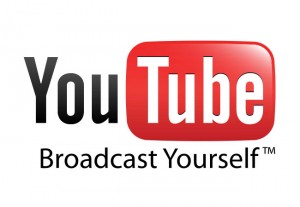
By
Rob ScottApril 3, 2011
CNN reports that the debate regarding whether Google is a media company or tech company — a publisher of content or indexer of content — may soon be over, as the company prepares to morph YouTube into an online “studio system” for a new era of content production. CNN suggests Google is already a media company, but the question should more accurately address what kind of media company; perhaps “one that operates by the economics of the Internet, with no legacy ties to the economics of television, movies, or publishing.”
 In recent months, Google has been investing heavily in its YouTube division, including: the hiring of content execs from Netflix and Paramount, recent acquisitions to enhance its current quality of offerings, plans to reportedly spend $100 million on developing new celebrity “channels,” and more. Google hopes to expand YouTube’s dominance in the UGC market to include niche programming and mass entertainment.
In recent months, Google has been investing heavily in its YouTube division, including: the hiring of content execs from Netflix and Paramount, recent acquisitions to enhance its current quality of offerings, plans to reportedly spend $100 million on developing new celebrity “channels,” and more. Google hopes to expand YouTube’s dominance in the UGC market to include niche programming and mass entertainment.
Of course, what makes the online video resource unique in terms of serving as a content provider, is that it has very little overhead. As compared to other media companies that are more directly involved in actual production, YouTube’s marginal costs are nearly zero. Advertising revenue is earned the same way whether viewers are clicking on a cute video about someone’s cat — or a professional basketball game (Google is in talks with the NBA and NHL to show live games on YouTube).
YouTube also enjoys the potentially infinite number of specialty channels the Internet provides, an approach that is not practical for cable. It may not matter from day-to-day which channels do well and which do not. As long as YouTube makes the platform available, the content can regularly evolve.
By
Rob ScottApril 3, 2011
In the ongoing battle between two tech giants, Microsoft claims that Google is stifling competition in Europe where Google controls approximately 95 percent of the online search market. Microsoft also alleges that Google is limiting data from YouTube and other services. The Los Angeles Times reports that Microsoft Corp. plans to file a formal antitrust complaint against Google Inc., as part of the European Commission’s investigation launched last November.
This is the first time Microsoft has filed such a complaint against a rival.
“Google has done much to advance its laudable mission to ‘organize the world’s information,’ but we’re concerned by a broadening pattern of conduct aimed at stopping anyone else from creating a competitive alternative,” wrote Microsoft General Counsel Brad Smith online. “We’ve therefore decided to join a large and growing number of companies registering their concerns about the European search market.”
According to Smith, Google is limiting data from YouTube required to properly display search results for Microsoft’s Bing and other search engines. And while iPhones and phones running Google’s Android software have no problems with YouTube, Smith claims Google has blocked phones running Windows software from interacting properly with YouTube.
“These allegations raise important competition concerns, especially in light of Google’s market share,” Senator Herb Kohl of Wisconsin said, “and we’ll examine them more closely as we prepare for our antitrust hearing.”
By
Rob ScottMarch 9, 2011
The Wall Street Journal reports that the Justice Department is investigating whether MPEG LA is unfairly trying to “smother” a free alternative format for delivering online video backed by Google.
Google’s open source VP8 video codec has been a concern for the MPEG LA organization, which has amassed patents covering popular video formats and collects royalties for its members, including Apple and Microsoft.
Video-streaming services such as Netflix and YouTube — as well as makers of Blu-ray Disc players and other hardware — currently pay patent royalties to MPEG LA. The antitrust probe is investigating whether MPEG LA or any of it members are attempting to knock out Google’s VP8 format by creating legal uncertainty regarding potential patent violations. WSJ suggests the probe “pits Google and open-source software advocates against some technology giants like Apple” — and raises interesting issues about the broadcast of online video in HTML5 and the future of content delivery.
 In recent months, Google has been investing heavily in its YouTube division, including: the hiring of content execs from Netflix and Paramount, recent acquisitions to enhance its current quality of offerings, plans to reportedly spend $100 million on developing new celebrity “channels,” and more. Google hopes to expand YouTube’s dominance in the UGC market to include niche programming and mass entertainment.
In recent months, Google has been investing heavily in its YouTube division, including: the hiring of content execs from Netflix and Paramount, recent acquisitions to enhance its current quality of offerings, plans to reportedly spend $100 million on developing new celebrity “channels,” and more. Google hopes to expand YouTube’s dominance in the UGC market to include niche programming and mass entertainment.